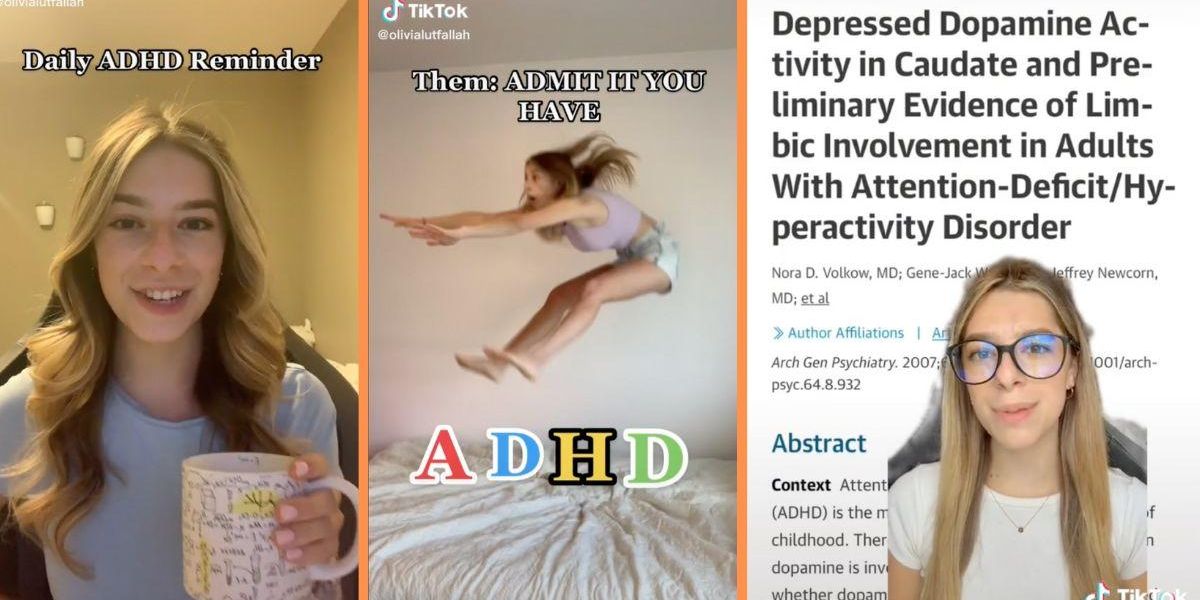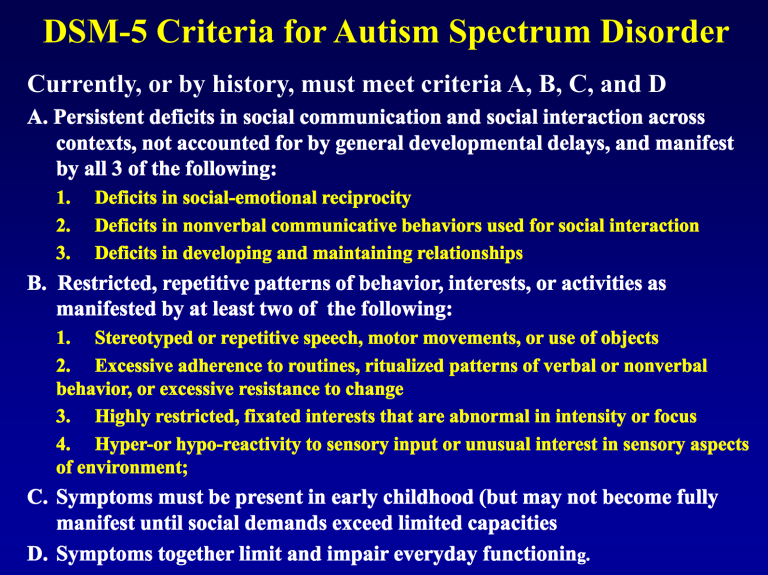Is TikTok Causing ADHD Misdiagnosis? A Growing Concern

Table of Contents
TikTok's Impact on Attention and Focus
TikTok's design may contribute to difficulties with attention and focus, symptoms often associated with ADHD.
The Short-Form Video Format
TikTok's rapid-fire, short-form video format constantly bombards the brain with new stimuli. This constant stimulation can lead to difficulties with sustained attention and focus, mimicking ADHD symptoms.
- Dopamine Rush: Each short video triggers a dopamine release, creating a cycle of reward and seeking more stimulation. This can make it challenging to engage in activities requiring sustained concentration.
- Constant Need for Stimulation: The platform’s design encourages continuous scrolling and consumption, making it difficult to disengage and focus on other tasks. This constant need for external stimulation can interfere with the ability to self-regulate attention.
- Impact on Executive Function: Executive functions, such as planning, organization, and working memory, crucial for attention regulation, may be negatively impacted by the constant stream of distractions. Research increasingly suggests a correlation between excessive social media use and impaired executive function. While more research is needed to establish direct causality, the potential for a negative influence is undeniable.
Intermittent Reinforcement and Reward Systems
TikTok's algorithm, which dictates which videos a user sees, operates on an intermittent reinforcement schedule. Likes, comments, and follower growth are unpredictable, creating a powerful reward system similar to that found in some behavioral therapies for ADHD. However, this is a potentially harmful application of the principle.
- Addictive Nature: This unpredictable reward system can be highly addictive, leading to compulsive checking and excessive use. The anticipation of a reward (a like, a comment) keeps users engaged, often at the expense of other important tasks.
- Effect on Impulse Control and Sustained Attention: The desire for immediate gratification from the unpredictable rewards can impair impulse control and make it even more difficult to maintain sustained attention on other activities. Studies on behavioral psychology have long established the powerful influence of intermittent reinforcement on behavior.
Distinguishing ADHD Symptoms from TikTok-Induced Behaviors
Several symptoms associated with ADHD overlap with behaviors exhibited by individuals with excessive TikTok use. It is crucial to differentiate between these two.
Overlapping Symptoms
Impulsivity, hyperactivity, difficulty concentrating, and emotional dysregulation are all symptoms that can manifest in both ADHD and excessive TikTok use. The challenge lies in discerning the underlying cause.
- Misinterpreted Behaviors: For example, constantly reaching for the phone might be interpreted as hyperactivity, while an inability to focus on homework could be mistaken for an attention deficit. However, these behaviors might be primarily driven by TikTok addiction rather than an inherent neurological condition.
The Importance of Comprehensive Diagnosis
A comprehensive assessment by a qualified professional is essential for an accurate diagnosis. Self-diagnosis or relying solely on observed behaviors can lead to incorrect conclusions.
- Key Aspects of ADHD Diagnosis: A proper ADHD diagnosis involves a thorough evaluation considering developmental history, multiple symptom domains (inattention, hyperactivity/impulsivity), and the impact on daily functioning across various settings.
- Seeking Professional Help: It is crucial to seek help from psychiatrists, psychologists, or neuropsychologists specializing in ADHD for a proper diagnosis. These professionals use standardized tests and interviews to assess for ADHD, differentiating it from other conditions.
The Role of Parental Awareness and Responsible Screen Time Management
Parents play a critical role in mitigating the potential negative impact of TikTok and similar platforms.
Setting Healthy Boundaries
Establishing clear boundaries around TikTok usage is essential for promoting healthy screen time habits.
- Practical Tips: This includes setting daily time limits, establishing screen-free zones (e.g., bedrooms, dinner table), and promoting alternative activities like sports, hobbies, or spending quality time together as a family. Open communication and setting realistic expectations are vital.
Educating Children on Healthy Digital Habits
Educating children about responsible social media use is as important as setting limits.
- Resources and Education: Parents should utilize available resources to learn about healthy digital habits and responsible screen time management. Open discussions with children about the potential downsides of excessive social media use and the importance of balance are crucial.
Conclusion
Excessive TikTok use can exhibit symptoms that mimic ADHD, such as difficulty concentrating and impulsivity. However, it's crucial to understand that excessive TikTok use is not a direct cause of ADHD. The two are distinct, though their symptoms can overlap. A proper professional diagnosis is paramount for differentiating between the two. If you are concerned about your child's behavior or your own digital well-being in relation to TikTok, seek a professional diagnosis to accurately determine if ADHD or other underlying issues are present. Don't let the symptoms of excessive TikTok use mask a proper diagnosis of ADHD. Prioritize responsible screen time management to cultivate healthy digital habits and well-being.

Featured Posts
-
 Pw Cs Strategic Retreat Impact On Sub Saharan Africas Business Landscape
Apr 29, 2025
Pw Cs Strategic Retreat Impact On Sub Saharan Africas Business Landscape
Apr 29, 2025 -
 Food Fuel And Water Scarcity In Gaza Fuel Calls To End Israeli Aid Ban
Apr 29, 2025
Food Fuel And Water Scarcity In Gaza Fuel Calls To End Israeli Aid Ban
Apr 29, 2025 -
 Adult Adhd Increased Prevalence Found In Individuals With Autism And Intellectual Disability
Apr 29, 2025
Adult Adhd Increased Prevalence Found In Individuals With Autism And Intellectual Disability
Apr 29, 2025 -
 Convicted Cardinal Claims Entitlement To Vote For Next Pope
Apr 29, 2025
Convicted Cardinal Claims Entitlement To Vote For Next Pope
Apr 29, 2025 -
 Capital Summertime Ball 2025 A Fans Guide To Ticket Acquisition
Apr 29, 2025
Capital Summertime Ball 2025 A Fans Guide To Ticket Acquisition
Apr 29, 2025
Latest Posts
-
 Amanda Owen Ravenseat Farm Faces New Challenges
Apr 30, 2025
Amanda Owen Ravenseat Farm Faces New Challenges
Apr 30, 2025 -
 Amanda Owens Strength And Resilience In The Wake Of Her Divorce
Apr 30, 2025
Amanda Owens Strength And Resilience In The Wake Of Her Divorce
Apr 30, 2025 -
 Amanda Owen Addresses Recent Challenges Following Split From Clive Owen
Apr 30, 2025
Amanda Owen Addresses Recent Challenges Following Split From Clive Owen
Apr 30, 2025 -
 Amanda Owens Next Chapter Life Work And Family After Divorce
Apr 30, 2025
Amanda Owens Next Chapter Life Work And Family After Divorce
Apr 30, 2025 -
 The Future Of Amanda Owen Ambitions And Challenges After Split
Apr 30, 2025
The Future Of Amanda Owen Ambitions And Challenges After Split
Apr 30, 2025
